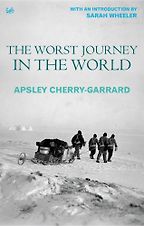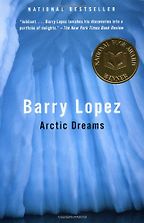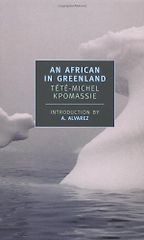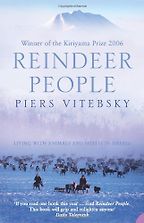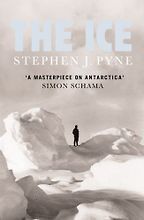What is your first choice about?
It is ostensibly the story of Captain Scott’s 1912 expedition to the Antarctic, but it’s really about all places in all times and is possibly the best book ever written. Cherry – as he was known – was on the expedition and the book has been in print since 1922. It started out as the official story of the expedition but became the unofficial story as he elevated it to the universal. The actual worst journey is a little side journey to collect the eggs of the emperor penguins, and he writes about the absence of people and the spiritual dimension of that, describing the endeavour as not just as his endeavour but as all endeavours, whether it is building a shed or a fence, going on any journey, putting down your last glass. For him, Scott didn’t really fail and I suppose he had to think that. He came back and three of his friends had died, the war had happened while he was away, the world had changed, for the worse, and his big act of redemption was writing this book.
None of the current books you read about journeys are about the journey being worth it in itself, any journey. It’s a masterpiece and definitely part of what inspired me to go to Antarctica. It is a deeply inspiring book in which he tries to redeem something from the journey. The last line is: “If you march your winter journeys you’ll have your reward, so long as all you want is a penguin’s egg.”
And the Lopez book?
Barry Lopez is an American man and in Arctic Dreams he describes the clarity of the landscape that has such a profound effect on the human spirit. Everyone says it has a profound effect. He’s a proper nature writer and it’s a brilliant book. He wrote it 25 years ago, I think, and it’s very lyrical and uplifting.
What is the effect on the human spirit? I would have thought being so alone would make you depressed.
No, it doesn’t. It takes you outside your normal existence and sets you loose from your spiritual moorings. Everywhere in the Antarctic is like that and in the Arctic you feel it when you get away from the settlements. The Polar regions are very uplifting, a different place, a better place. They are very compelling too. That’s another thing about these places: that people keep going back once they’ve been. I spent seven months in Antarctica and I can’t really keep going back there because it’s so hard to get to, but I do go back to the Arctic.
Antarctica is easily definable, a continent, and it is not owned, which is important, of course. The Arctic is owned and fucked up and the people have been fucked over by successive regimes. Lopez goes to the very north of the Arctic in North America, that is Alaska and Canada, but he’s not a sledge-puller, not one of those. Cherry was a sledge-puller but he turns it into a metaphor. Lopez talks about the flora and fauna and then, when there aren’t any, about the quality of light and of the landscape, about people’s relationship to the landscape and about what we’ve lost by being so disconnected from nature.
An African In Greenland?
This is the most wonderful travel book. It’s the best book ever written on Greenland. I read it while I was there. It’s the story of a man from Togo who went to Greenland in the 1960s and he didn’t carry the white man’s burden and could therefore look at the people and the country more objectively.
The people, the Inuits, were then on the cusp of integration and acculturation and what he did was live with them. He learnt to dig an igloo burrow and drive dogs, and he integrated all right – he ended up in hospital with a suspected case of the clap!
He was a boy from the jungles of Togo really and part of the story is how he got there and what he was doing there, but he talks about his relationships and he sleeps with the women. They have just got their first cinema and the projectionist has to stop the film every ten minutes for someone to stand up and give the translation. He is a natural writer and is able to write in an objective way. He lives in Paris now.
And we’re in a different region of the world in The Reindeer People.
Russia has 5,000 miles of Arctic territory, more than any other country, and there are 20 different peoples living there, most of whom are reindeer people, clinging to the shreds of what they once were. Vitebsky lives with and studies the Eveny people. He is an anthropologist and he’s writing about acculturation, but it’s not full of the platitudes and clichés you normally read. It is an in-depth portrait of reindeer herders living at minus 50˚.
They have been through tremendous upheavals. They were collectivised under the Communists, which was obviously very difficult to do with a nomadic people. There aren’t really any nomadic people any more, just semi-nomadic, and the book is about what has happened to them, the ravages of alcohol and Communism. But he does find something alive in the human spirit. Just.
Five Books interviews are expensive to produce. If you're enjoying this interview, please support us by donating a small amount.
He is a proper anthropologist and he can unite anthropology and great writing and make anthropology accessible – more than accessible. He lifts the book out of academia, which of course they all want to do but not many can. The Eveny are not really Russian, they have Mongoloid features. They have been completely left behind now. Nobody’s interested, there’s no money, they are doing worse now than they were doing under Communism and alcohol is playing a major part in that. But this book describes what it’s like driving reindeer at minus 50˚, sitting round a camp fire when everything’s going well. They use every part of the reindeer, they eat it, dress in its hide, drive them and, when they are travelling with them they look and smell like them too.
The book is full of poignancy and lyricism. There is a heartbreaking moment every time he goes back – he is a good anthropologist and so goes back to check on what has changed – and someone he thought would never go under to alcohol has done so. It’s about Russia but it’s about everywhere.
I’ve written about Antarctica, when I was a young woman, and it was a vision of hope and purity, innocence – a country where there had never been war. Then, recently, in middle-age, I’ve written about the Arctic, polluted, fragmented, all the settlements are horrible. There’s no room for good architecture and it’s all ugly, the schools, the hospitals and there’s no sense of disposing of rubbish and nowhere to put it anyway. It suits the elegiac vision of middle-age. I am most interested in humanity. That’s what climate change is about. The earth will be fine, will regulate itself, it’s us that are going to have the problems. Loveable, fallible, hopeless humans. My book is a love affair with humanity, trying to find dignity where on the surface there seems to be none with all the booze and disenfranchisement. I wanted to find the icescapes but was drawn back to where the people are.
And the Stephen J. Pyne book?
The Ice is non-fiction and it’s all about different kinds of ice in the Arctic! It is informative is what I’d say about this book. It is a huge book by a scientist and it was the hardest one to pick. But it is an extraordinary thing, ice. It’s not one thing, there are all different kinds and Pyne is drawn into its complexity.
Get the weekly Five Books newsletter
Art and science are drawn together too and I find that interesting. Art and science really are drawn together in the Polar regions and it was there that I found there is more similarity between the two than people tend to think. The book is about how ice is formed but he draws in an artistic vision to complete his picture. It is an apocalyptic book about how much ice there is, or how little, and how important it is for us to have a relationship with it beyond ice-cubes in the ice-tray. It’s not full of pictures – he makes the words do it, which I love. I didn’t use pictures in my Antarctica book. There are lots of lovely coffee table books about the Polar regions but people can find those easily and I’m not really interested in them. I want to show people the Polar regions in words, from the perspective of words.
You don’t mention animals much.
I suppose that reflects the fact that I’m not particularly interested in animals. Penguins come into the Cherry book and he talks a lot about penguins and how fearless they are. They have no land-based predators so they are fearless and perhaps that’s how things were with animals before we started killing them. You get fed up with penguins before they get fed up with you.
October 7, 2009. Updated: November 6, 2021
Five Books aims to keep its book recommendations and interviews up to date. If you are the interviewee and would like to update your choice of books (or even just what you say about them) please email us at [email protected]
